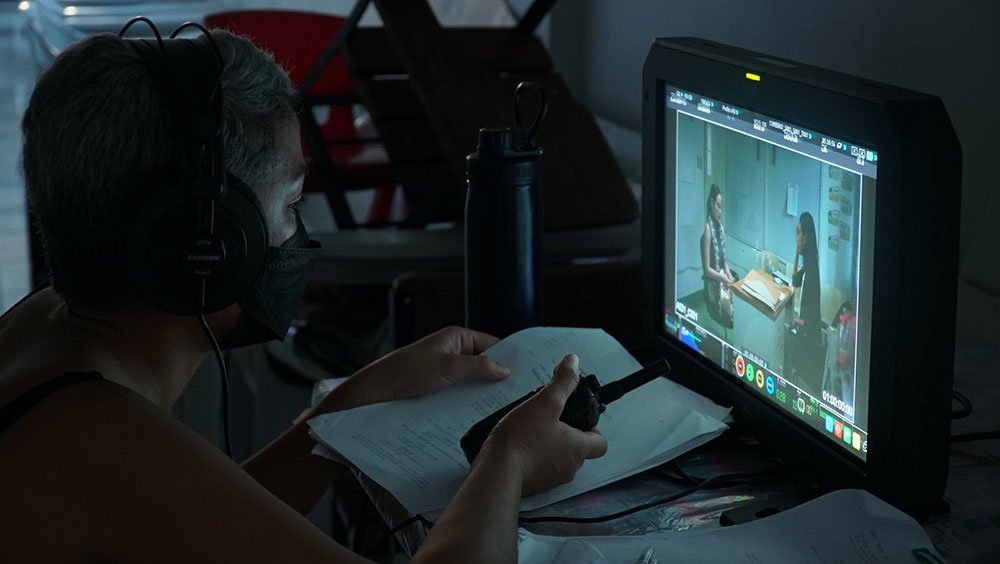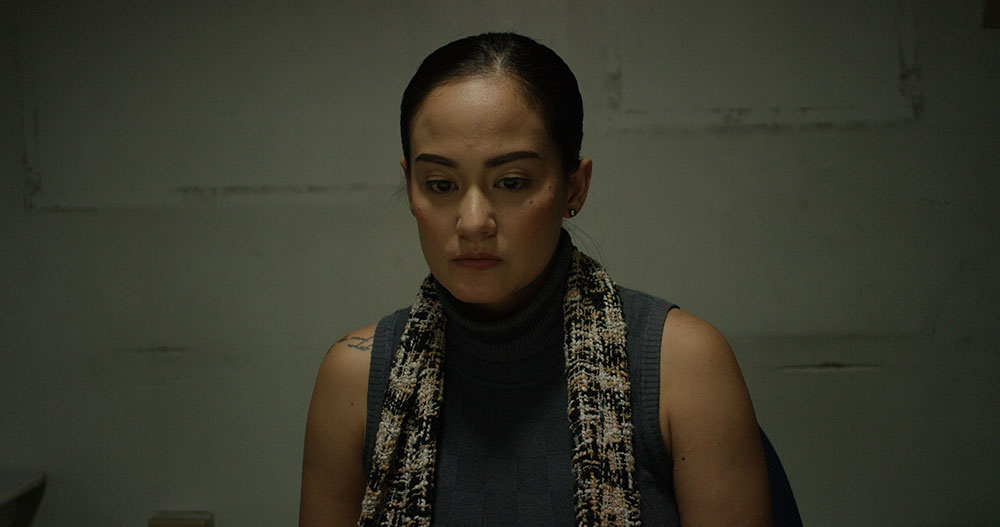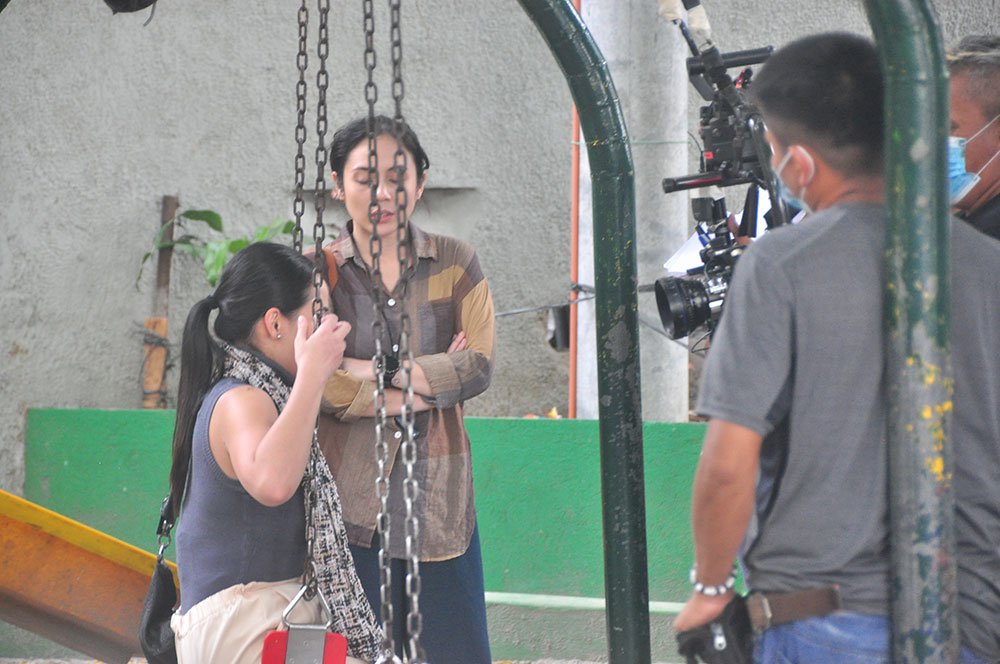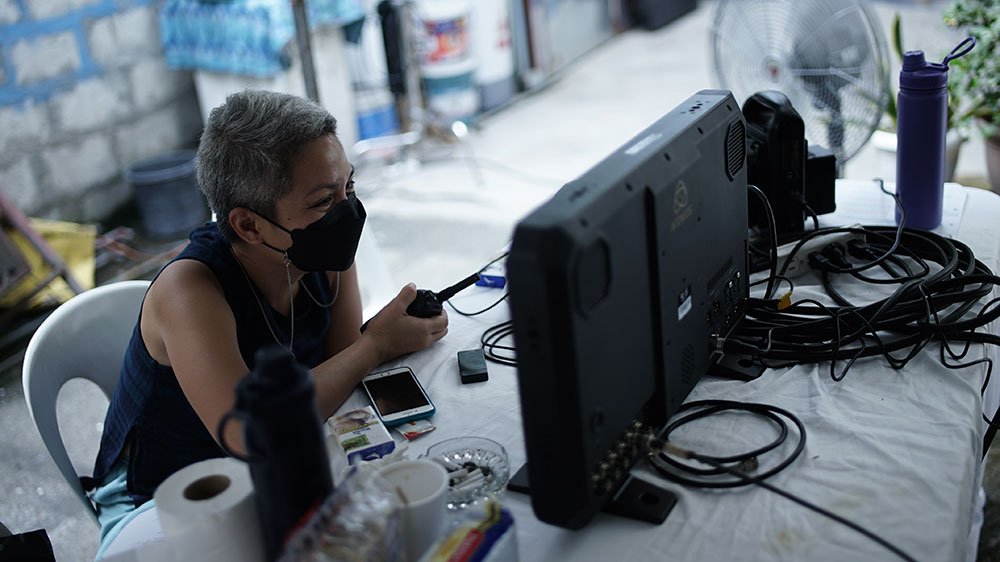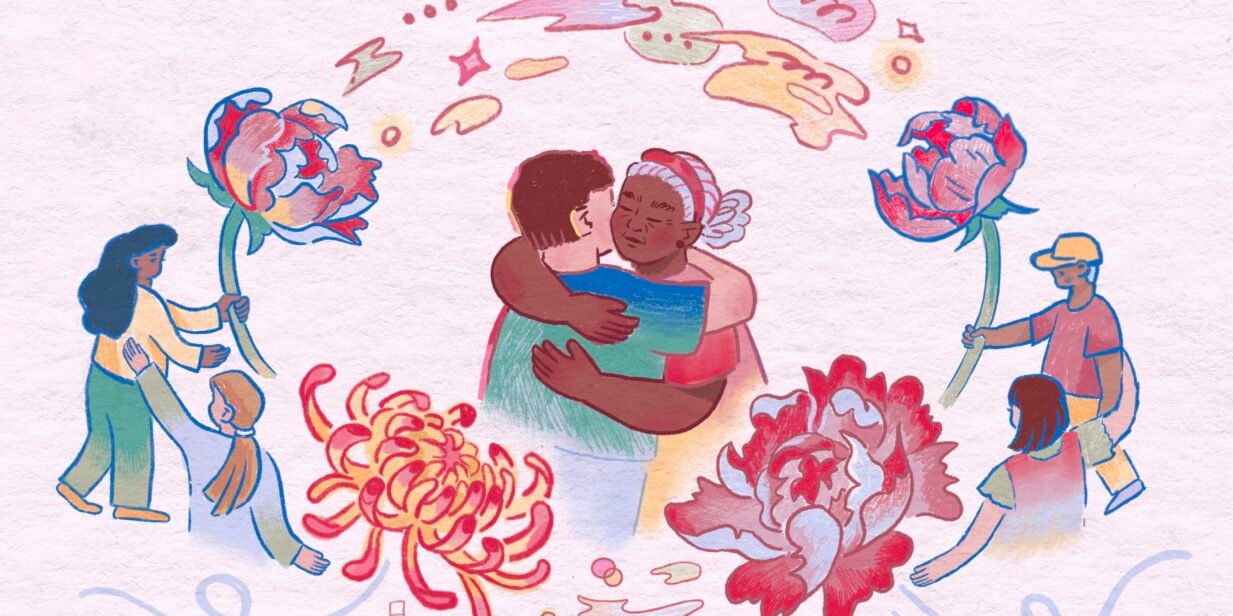In the late afternoon of one of this summer’s hottest days on record, I sat down for a conversation with writer and director Anna Isabelle “Sunshine” Matutina. 12 Weeks, her first feature film, was premiering internationally in this year’s New York Asian Film Festival at Lincoln Center in New York City.
Sunshine is a whirlwind of energy in a bright pink top and a chic pixie cut – it was hard to believe she had stepped off a flight from the Philippines less than 12 hours earlier. When she heard I had already watched the film in advance of the interview, she wrung her hands nervously. “It is my international premiere!” she admits. “I don’t know how it’s going to resonate [with] international audiences. I’m very wary about that.”
A “holistic” approach to the overdone “Abortion Film”
12 Weeks is about Alice (Max Eigenmann), a successful, career-oriented 40-year-old who grapples with an unexpected pregnancy, its impact on her life and interpersonal relationships, while also seeking an illegal abortion in the strongly Catholic country. Yet, Sunshine resists defining 12 Weeks as an abortion film – the label is too “sensationalist” and “festival bait” – to her, the film is more so about modern womanhood in the Philippines.
Alice herself resists the stereotype of a quote-unquote ‘abortion film protagonist.’ Sunshine wanted to feature someone older, with the financial capacity to raise a child by herself, and easy (if illegal) access to a doctor able to perform abortions. Situating her without various sorts of morally sympathetic baggage, the sole question that remains is whether Alice herself wants what motherhood entails.
“My mentors were afraid that it’s too melodramatic,” Sunshine says, “and I’m like, I don’t know, it’s my life! It’s a very personal film, a lot of it is really drawn from experiences and from actual things that I’ve seen happen. I wanted it to stick as closely to the truth as possible; I wanted it to remain authentic.”
Sunshine’s dedication to authenticity comes in part from her background in journalism and documentary filmmaking, which heavily influences 12 Weeks. She insisted on shooting the entire film on hand-held cameras, creating an informality and sense of intimacy. Lingering shots of Alice’s face capture flashes of thoughts unsaid, and the film’s script plays its message close to its chest, revelling in the mundane conversations characters must have to skirt around the truth.
The influence of the environment Alice finds herself in as she is making this deeply personal choice is another theme that 12 Weeks explores, and where its identity as a Filipino film emerges. In a setting where women and individuals feel cloistered in overlapping systems of social codes, culture and history, it begins to feel as if the choices you make are not your own.
The Philippines has one of the most restrictive abortion laws in the world, where abortion is broadly banned with no exceptions. It was only recently that the Philippine Commission on Human Rights has called for the decriminalisation of abortion, a long way from its original statement in 1999 which cited Catholic doctrine and deemed the medical procedure “immoral.”
In a country where divorce is banned and contraception has been discouraged by religious and political leaders, sexual independence is limited in many ways for Filipinas, disproportionately impacting the poorest among them. Despite the dizzying legal barriers, Sunshine found herself much more interested in the cultural barriers that quash the free exercise of reproductive rights.
“I really wanted to do the film in a way where I can bring to the centre of the story what it means to actually have the [abortion] rights that we are asking for,” Sunshine says. “What we’re fighting for in the Philippines is at least decriminalised abortion, but if you haven’t changed the culture, it’s not a guarantee that things will change for the women.”
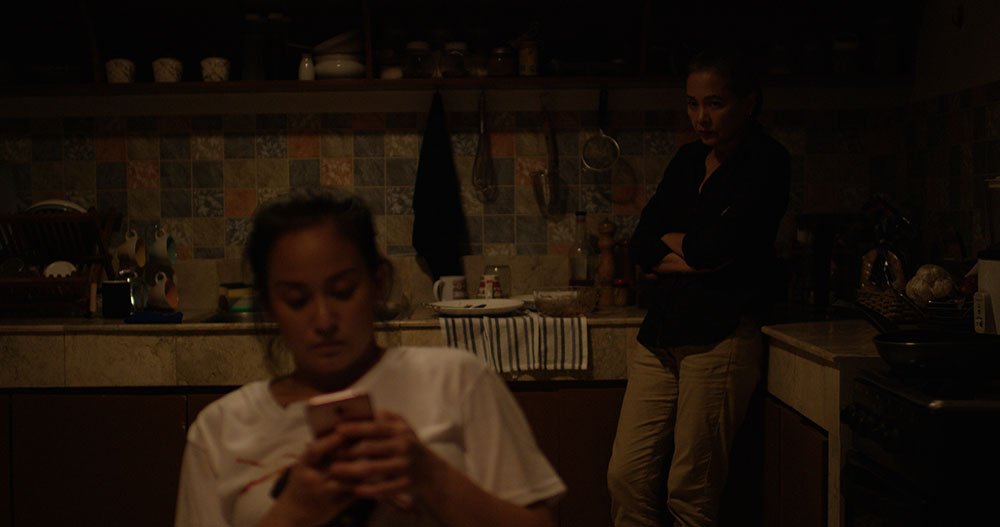
“We don’t even realise that we’re perpetuating this system that they built for us.”
In framing 12 Weeks, Sunshine deliberately keeps the men of the film on the sidelines. While there are regular interactions with the men in her life — Alice’s boss, her boyfriend Ben who wants her to keep the baby, and her perennially smoking, shirtless neighbour — the camera’s focus rests squarely on Alice’s reactions.
The men in the film exist as shadowy ghosts of maleness on the periphery of Alice’s worldview, yet the weight of their social power over her is palpable in each frame. Sunshine notes: “even when you don’t see the men around you still feel the patriarchy because it’s so systemic.”
The women in the film also act as translators of patriarchy in their relationships with other women. The pre-screening interview for her off-the-books abortion is done by a probing, off-camera female voice. Her female colleagues similarly press her on her medical forms and her lack of alertness at work. but by far the most insistent voice in the conversation is her mother, Grace (Bing Pimentel), who is roped in by Ben to try and convince Alice to keep the baby, and who has her own complicated relationship towards motherhood.
“One of the main reasons I wanted to do this kind of film was because I was trying to come to terms with the habits that I’ve formed due to internalised misogyny,” Sunshine says. “We get that from our own mothers, and it’s passed down from generation to generation. That’s how much men came to manipulate and control the narrative – we don’t even realise that we’re perpetuating this system that they built for us.”
The internet has a joke about failing the Bechdel test in your conversations with other women, referring to the popularly used standard for female representation in the media where two named female characters have a conversation about something other than a man. People use it to discuss how much basic conversations seem to drift inexorably towards male presences in our lives, but the greater joke of the internet’s Bechdel test is that you will always fail it by virtue of how much maleness has shaped the world we live in. Yet, having that measure gives us perspective on what we should be aware of in our relations with other women, and how we can aspire to a space that doesn’t revolve around men.
Rooting out the voice of the patriarchy from our minds is a challenge, Sunshine acknowledges, but sometimes the first step is watching and hearing it more clearly, and using that uncomfortable identification to bring proactive resistance in our spaces and our relationships.
“We’re trying not to be like our mothers, yet we end up being like them.”
By virtue of smart casting, Alice and Grace have a natural sense of tension and dynamism to their relationship: Bing Pimentel, who plays Grace, is Max Eigenmann’s mother in real life. “I specifically wanted real-life mother-daughter actors,” Sunshine notes. “It helped that my actors could actually relate to the scenes. I had to shoot this in eight days and we had very little budget, so if I could make things easier and faster, then great!”
Alice and Grace’s contentious and estranged relationship is the heart of 12 Weeks. Scenes of bickering and care feel natural between the pair. One scene that delighted me was watching her mother unload groceries in Alice’s house, just to put them in all the wrong places. In another, her mother expresses joy over Alice’s pregnancy but bemoans the fact that the baby’s father, Ben, is not as handsome as she would have liked. In their conversations, the audience can feel how Alice seems to shrink, reverting to a sullen teenager whenever her mother is around.
“Even now, sometimes [Max] would text me out of the blue: I’m feeling like Alice again,” Sunshine reveals. “We’re trying not to be like our mothers, yet we end up being like them.”

Join our mailing list
Sign up for shado's picks of the week! Dropping in your inbox every Friday, we share news from inside shado + out, plus job listings, event recommendations and actions ✊
Sign up for shado's picks of the week! Dropping in your inbox every Friday, we share news from inside shado + out, plus job listings, event recommendations and actions ✊
The creative grist of the mother-daughter relationship seems endlessly fertile in its contradictions—I find that my mother understands me better than anyone else in the world at one moment, and doesn’t understand me at all in the next.
In between moments of Mom, nobody says that anymore! or Mom, you don’t need to remind me, I’m an adult!, I still hear her voice in my inner dialogue, telling myself to turn my jeans inside out before I wash them, or to drink only warm water in the mornings. To paraphrase another movie about (plastic) womanhood, sometimes mothers and daughters do exist to show each other how far we have come.
But, Sunshine asks, what happens in the moments when it feels like we have wound up in the same square we started in?
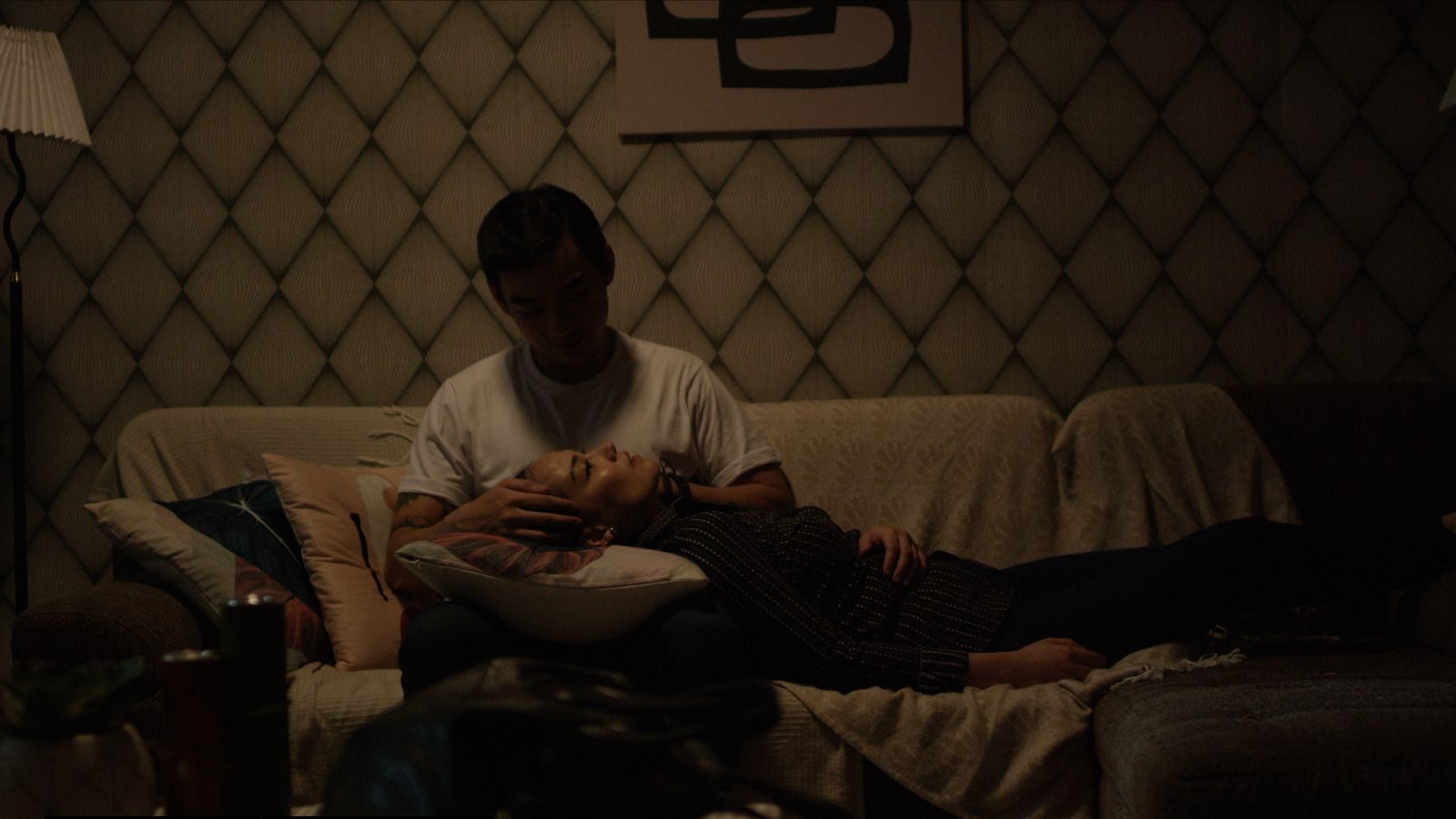
Echoes of the past in the present
12 Weeks is about cycles: of abandonment passed down from mother to child, of patriarchal values perpetuated between generations, and also, less esoterically, the cyclical political turmoil the Philippines has faced since the dictatorship of Ferdinand Marcos in the 1970s.
Marcos and his wife Imelda, are towering figures of the Philippines’ past. Elected in 1965, Marcos held power for more than two decades, aided by a brutal seizure of power under the imposition of martial law in 1972, and years of cruel rule and corruption under his practice of “constitutional authoritarianism.” After the People Power Revolution in February 1986, the Marcos family was finally ousted from power. The dictator and his wife escaped to Hawaii aided by the US government, with almost 10 billion US dollars’ worth of riches stolen from the people of the Philippines.
Alice’s mother continually reminds her of the fact that she had considered abortion while she was pregnant with her 40 years ago. In the height of martial law under Marcos, it had seemed inconceivable to her to want to bring a daughter into the world. Yet, in Alice’s case, her choice is set against the backdrop of the 2017 uprisings in Mindanao, where the Philippine government, under President Rodrigo Duterte, imposed martial law for the longest time since the Marcos dictatorship.
The legacy of the Marcos regime is also felt in Alice and Grace’s estrangement. In the film, it is revealed that Grace was absent during Alice’s childhood as she was working in Hong Kong as a domestic worker, which Sunshine notes was part of a policy championed by the Marcoses in the mid-1970s to export Filipina labour abroad. Many of these women left family behind in the Philippines, only returning once their children have become adults.
Today, 1.4 million Filipinos are working abroad as domestic workers, and their remittances make up one of the central pieces of tax revenue for the Philippine government, part of numerous echoes of the past that Alice’s generation shares with Grace’s.
In a 2019 speech, President Duterte praised the “nation-building efforts” of these migrant workers, calling on them and their families to “continue making our country proud.” Yet, the compliment somehow rings hollow for these men and women abroad, who spend their lives building prosperity in a home country they hardly get to see, sending care packages for children whose childhoods they miss entirely. For many women, this complex of state-supported labour exportation means that many Filipinas are, as Sunshine puts it, “escaping oppression just to be oppressed again.”
“We’re still gonna fight, we’re just resting for a bit.”
In 2022, Ferdinand “Bongbong” Marcos Jr., the son of the exiled dictator, won the presidency with vice-president Sara Duterte, daughter of the former president, at his side. The presidential alliance of two of the Philippines’ most notorious political dynasties signalled a backwards step from the optimism of the years of democracy that followed the People’s Power Revolution. The futility that the film expresses, where individuals feel doomed to choices between the same rocks and hard places of history repeating itself, seems almost universally applicable to so many fights for rights around the world.
I know I felt this common connection – in the wake of various restrictions on abortion rights rolling out with startling speed across the United States, I have felt the sense of womb-worry that accompanies thoughts of what this right means for me. It is hard to imagine that a choice so intrinsic to our sense of self – our relationship to our bodies – remains a privilege for so many. Beyond that, it can feel exhausting to even think about the progress that needs to be made in the face of a past that seems immovable.
Uncertainty is rife now, and while 12 Weeks is certainly enhanced by a knowledge of Filipino culture and history, any empathetic viewer can grasp the themes that the film wrestles with, of exercising agency in the face of historical and social pressure, and of choosing optimism in the face of uncertainty.
Yet, this pessimism seems at odds with Matutina’s history as an activist. Does she feel like there is a sense of optimism that things in the Philippines can and will change?
“It’s exhausting,” Sunshine admits. “A lot of people from my generation are so depressed already, because after all of this, you have another Marcos. I don’t even know where to begin, but we’re always trying.” She adds: “There will always be potential [for change], but I think it’s gonna take some more years. We’re still gonna fight, we’re just resting for a bit.”
12 Weeks is a story about the Filipina experience, but it will resonate with anybody struggling to find themselves amid cycles of history, entrenched social injustices, and overbearing mothers. It is another chip against the systems that continue to bind. While the film ends ambiguously, dealing with themes and symbols of unfulfilled hopes, it also ends on a final note of resurgence, where every fresh birth (metaphorical or not) of the cycle is an opportunity to break out of it.
What can you do?
Organisations:
- Philippine Safe Abortion Advocacy Network, which advocates for the decriminalisation and legalisation of abortion in the Philippines
- The Damayan Migrant Workers Association, which supports and organises low-wage Filipino workers, or the National Domestic Workers Alliance, which advocates for domestic workers’ rights across the USA
- Stop the Trafik also has resources for Filipino domestic workers aid and advocacy groups around the UK
Documentaries:
- The Kingmaker, about Imelda Marcos’ political career, role in her husband’s dictatorship, and mission to rehabilitate the Marcos family name.
- Aswang, about martial law under President Rodrigo Duterte and his brutal war on drugs.
- A Thousand Cuts, about current press freedom struggles in the Philippines.
- A Rustling of Leaves: Inside the Philippine Revolution, a 1988 documentary following the ouster of Marcos and the establishment of a nascent democracy in the Philippines
Other shado articles:
